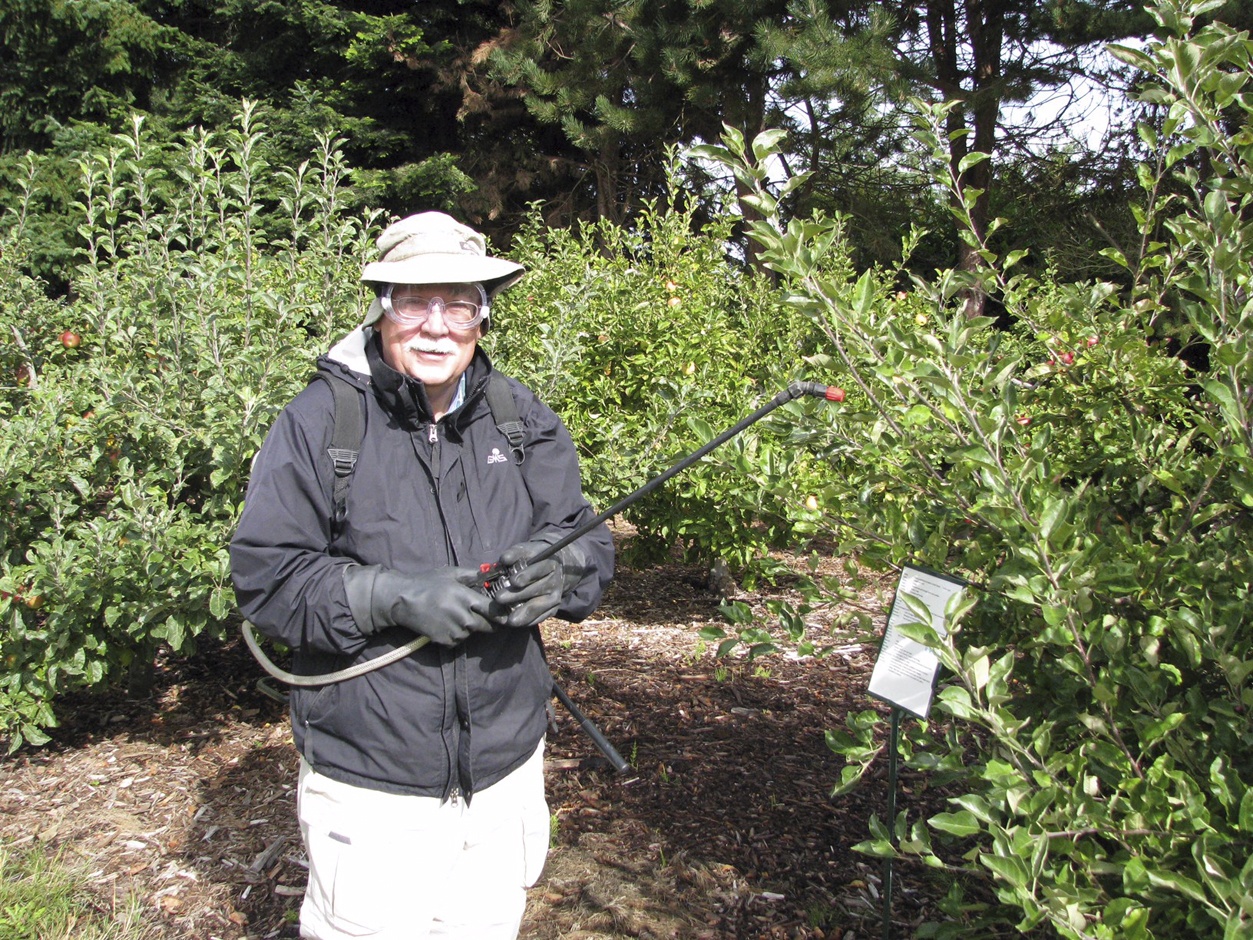Whether you have a small yard or acres that stretch toward the horizon, your use of pesticides impacts the environment and others in your community. Pesticides are products used to kill pests such as insects, fungi, slugs and weeds. If mishandled, they can be harmful to humans, other animals and the environment.
Answer these questions before considering use of a pesticide:
• Have you identified the pest or disease causing the problem?
• Is the level of damage great enough to warrant control?
• Is the problem likely to go away without action?
• Have you tried other, non-chemical methods of control?
• Is the pest in a vulnerable stage at the time you will apply the pesticide?
If you decide to use a pesticide remember, “The label is the law.” Read the entire label before purchasing. The pest or disease to be targeted and the location in which the product is to be used must be listed on the label. By law, people who use pesticides MUST read, understand and follow label directions.
Purchase the least toxic product based on the signal words that appear on the label: “CAUTION” (least toxic), “WARNING” (mid-level toxicity), or “DANGER” (most toxic).
Avoid pesticides with warnings such as, “This product is highly toxic to bees” or “Do not apply where runoff is likely.”
It is illegal to use a pesticide on a food crop unless that food is listed on the label. Look for “pre-harvest” information to know how many days must pass between spray and harvest for the food to be safe to eat. Washing produce after harvest will not remove all of the pesticide residue.
Spray pesticides only when the wind is 5 miles per hour or less. Breezes can spread a pesticide to places you do not want it to go, like right back into your face!
Keep children and pets out of the application area and do not allow them back into that area until the pesticide has dried or settled.
Wear long sleeves, long pants, chemical-resistant shoes or boots, waterproof gloves, eye protection, a hat with a brim and neck protection when applying pesticides. Wash these clothes separately from other laundry.
Never eat, drink or smoke while using pesticides. Wash your hands, arms and face when finished working with the pesticide. Shower and put on clean clothes as soon as possible.
Rinse the sprayer body, hose and nozzle with clean water immediately after use. Dispose of the rinse water over an area that will not be harmed by the pesticide. Do not pour it down the drain or into a ditch system. Never use a sprayer that has contained a weed killer to apply an insecticide or fungicide. This may kill a desirable plant.
The shelf-life of a pesticide may be listed on its label, but if not assume two years. Dispose of pesticides at the Clallam County Moderate Risk Waste Facility, 3501 W. 18th St., Port Angeles, from 11 a.m.-4 p.m. Wednesdays and Saturdays.
Pearl of wisdom
Store pesticides only in original containers and cover the label with clear plastic tape to keep the label/instructions legible. Never store pesticides in the house or near food or medical products. Preferably, store pesticides in a locked cabinet on a shelf at least four feet off the ground, away from children and pets.
And more
For more gardening information, attend a Saturday in the Garden presentation at the Master Gardener Demonstration Garden at 2711 Woodcock Road in Sequim. These free educational events are held on selected Saturdays. On Aug. 20 at 10 a.m., Master Gardener Sally Tysver will talk about thyme in the landscape, garden and kitchen. For more information, call 565-2679.
Judy English and Jeanette Stehr-Green are WSU-certified Clallam County Master Gardeners.



